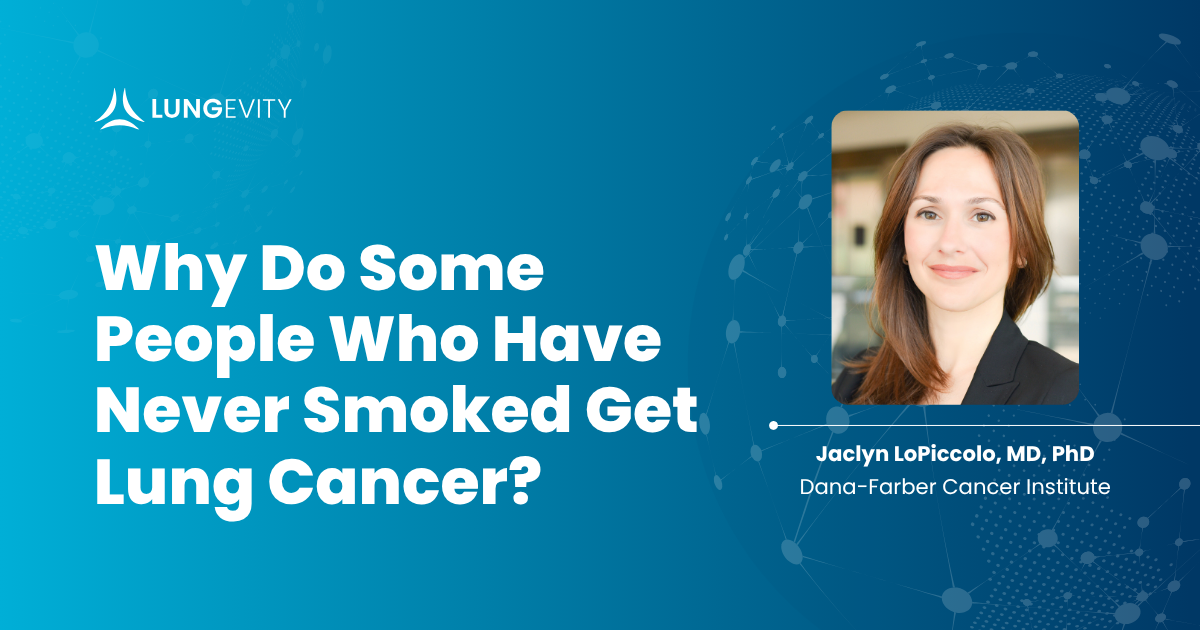As tobacco use has declined in recent years, we have seen a new demographic of lung cancer patients emerge. Lung cancer in individuals who have never smoked (LCINS) is becoming more common. These people are often younger women with no history of tobacco exposure.
Researchers are working to understand the needs of this growing population by identifying other risk factors for lung cancer, such as family history and environmental exposures. They are also studying the molecular underpinnings of this disease to develop targeted approaches for early detection and treatment.
As part of LUNGevity’s International Lung Cancer Survivorship Conference last September, we hosted an educational session about lung cancer in individuals who have never smoked with Jaclyn LoPiccolo, MD, PhD, of the Dana-Farber Cancer Institute.
The virtual International Lung Cancer Survivorship Conference is the place to learn about state-of-the-art treatments and cutting-edge developments in lung cancer from experts around the world.
You can register now for this year’s conference on September 26-27, 2025.

